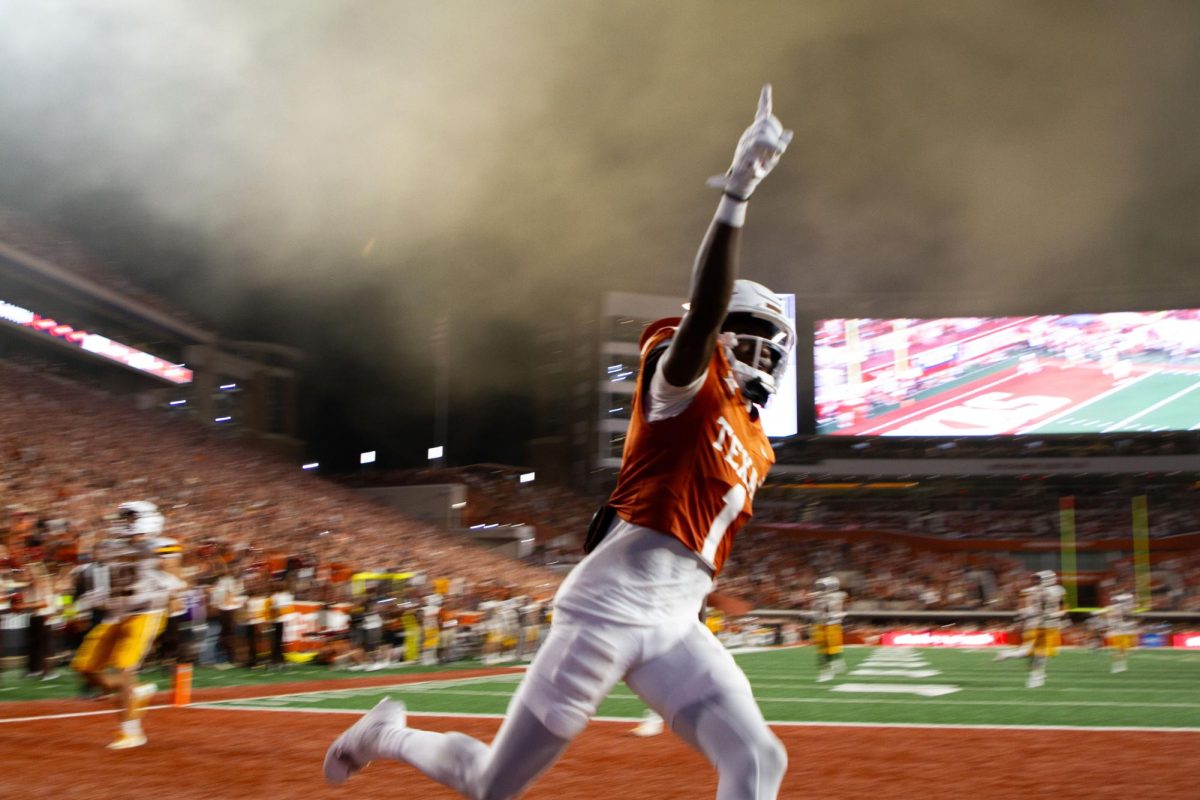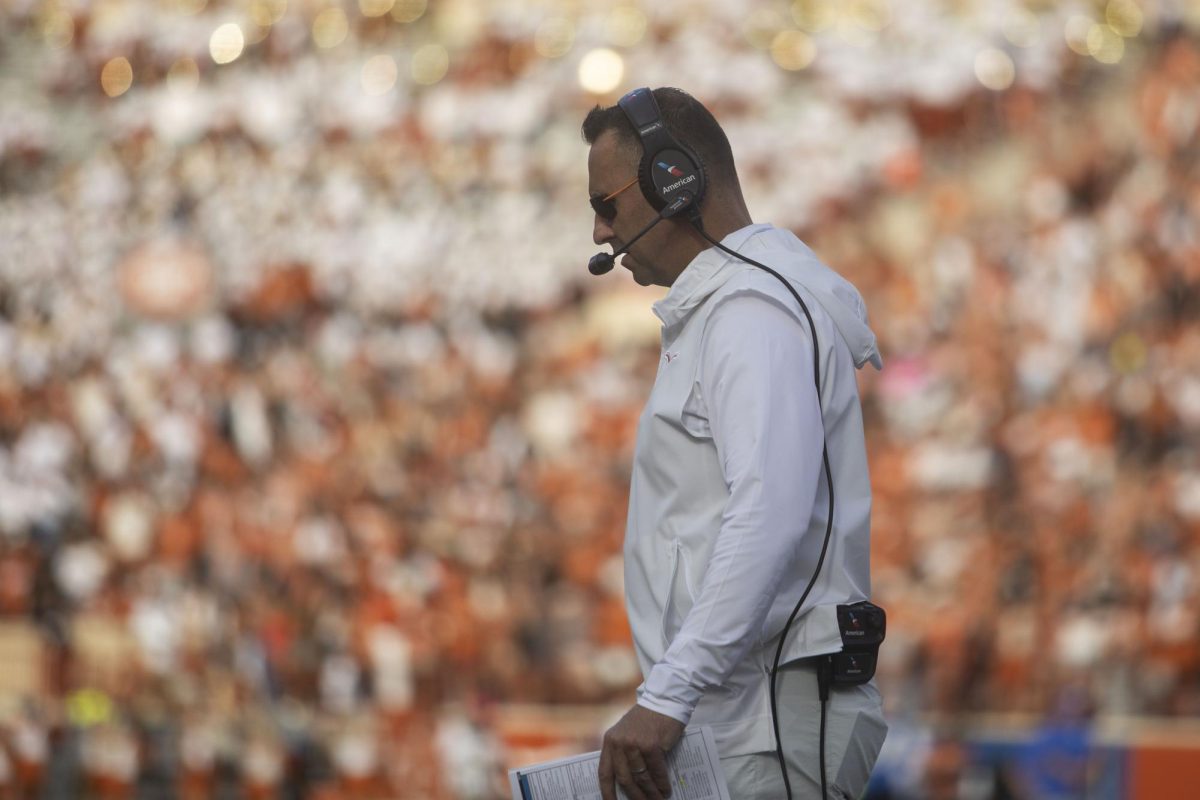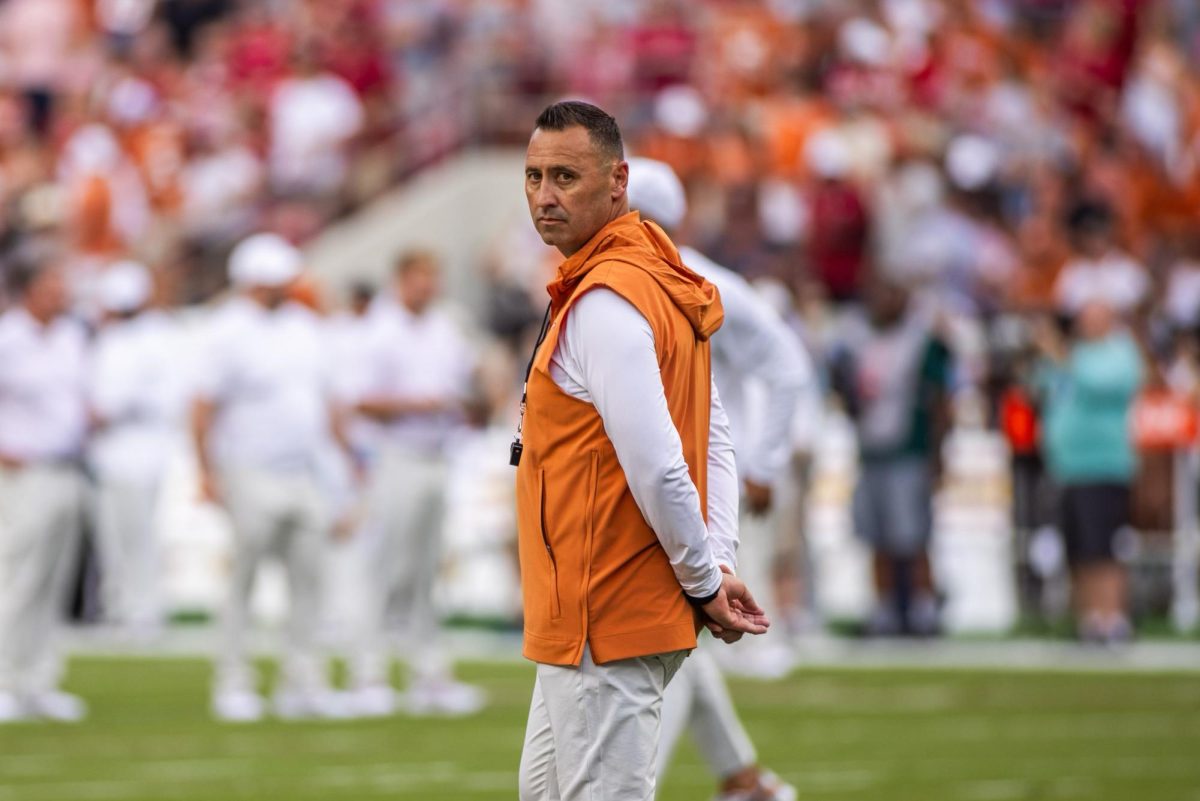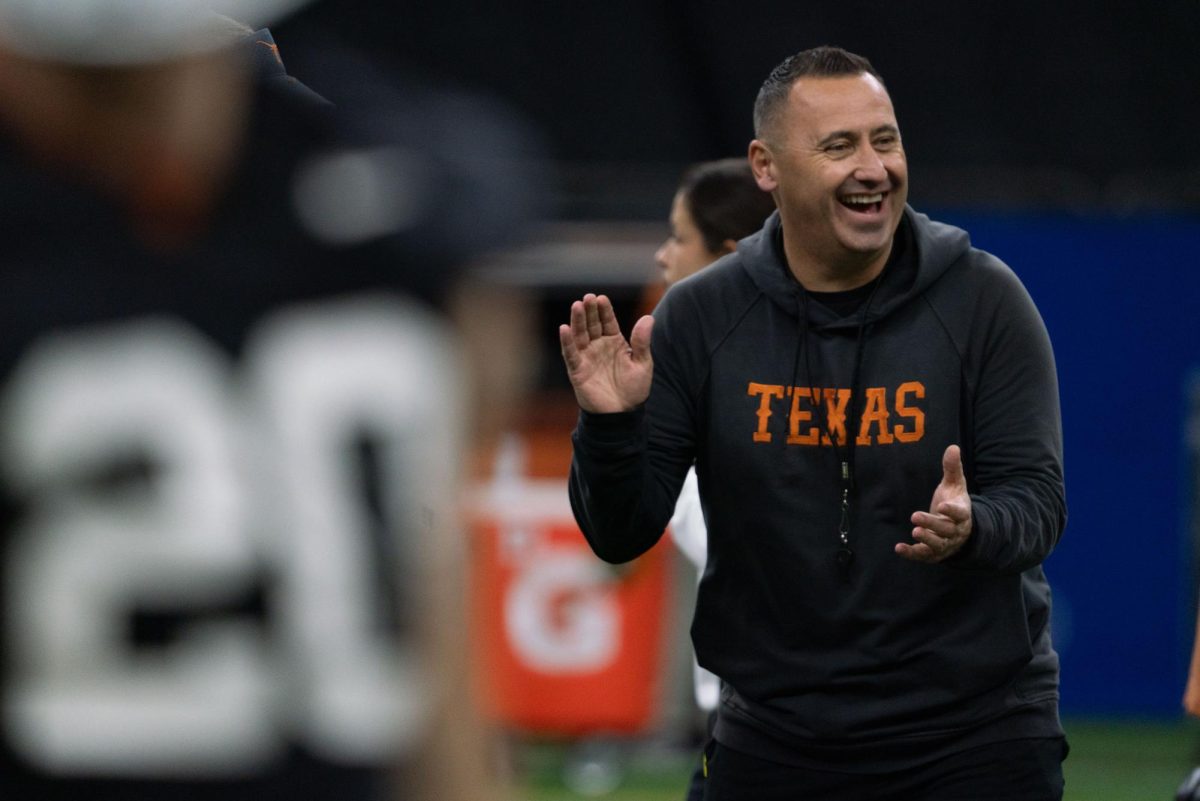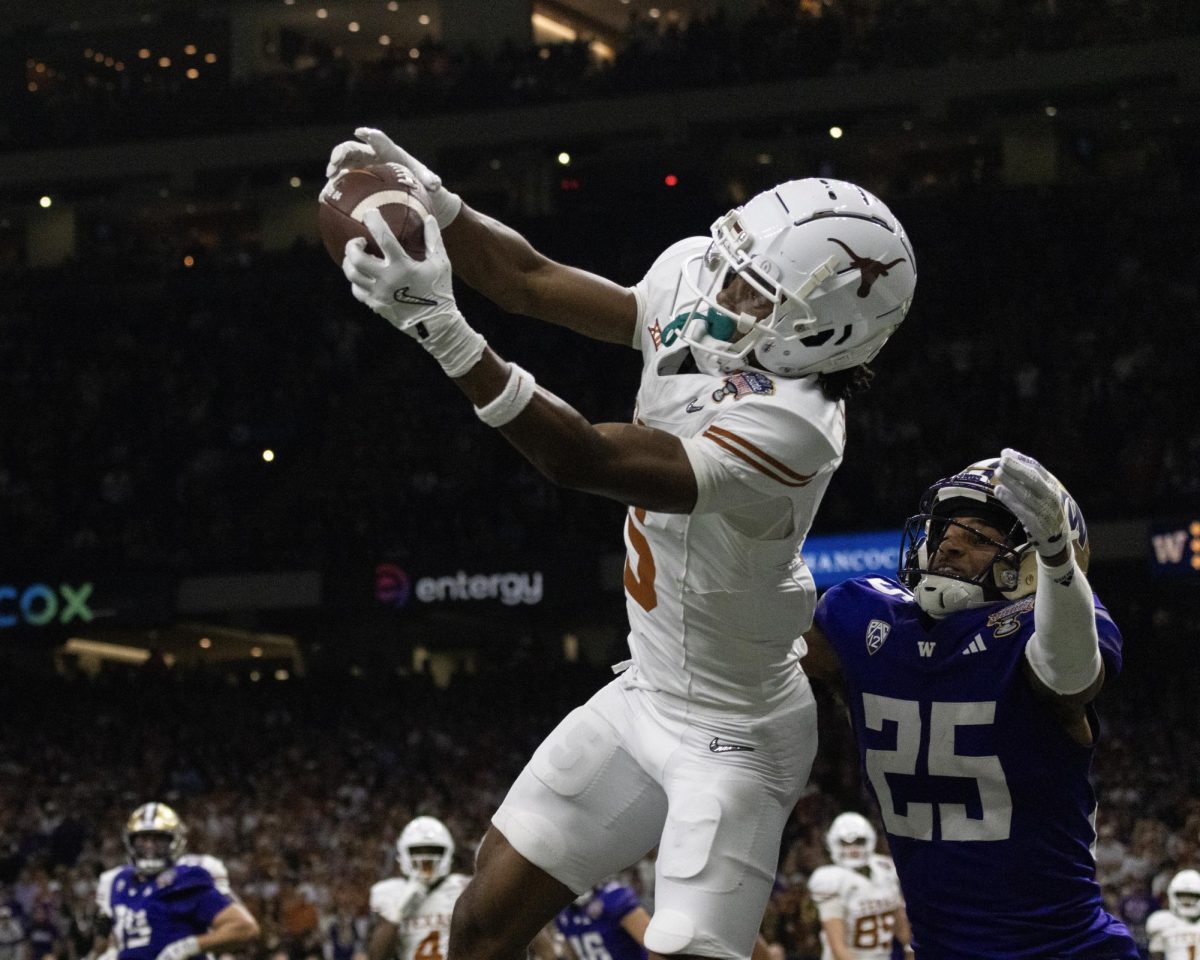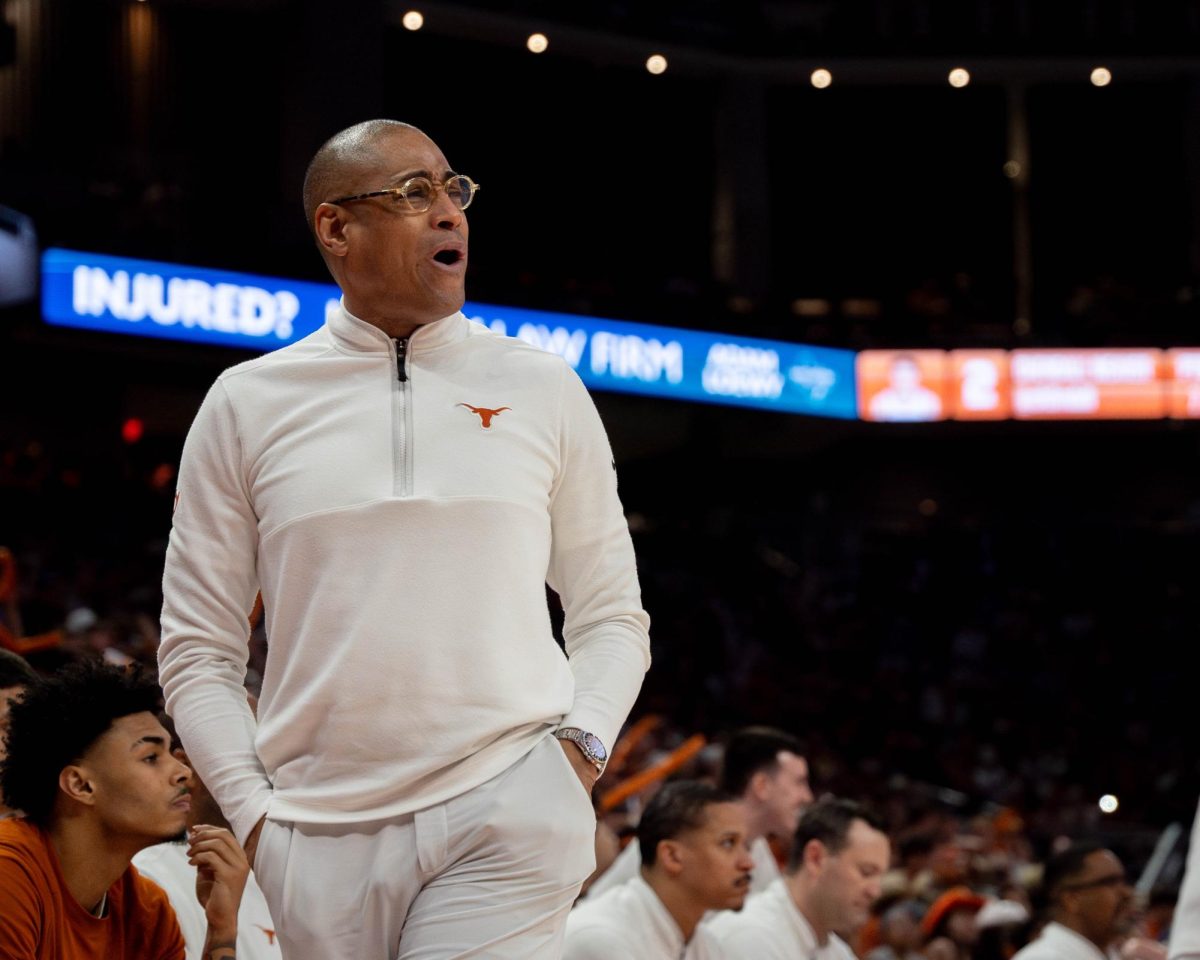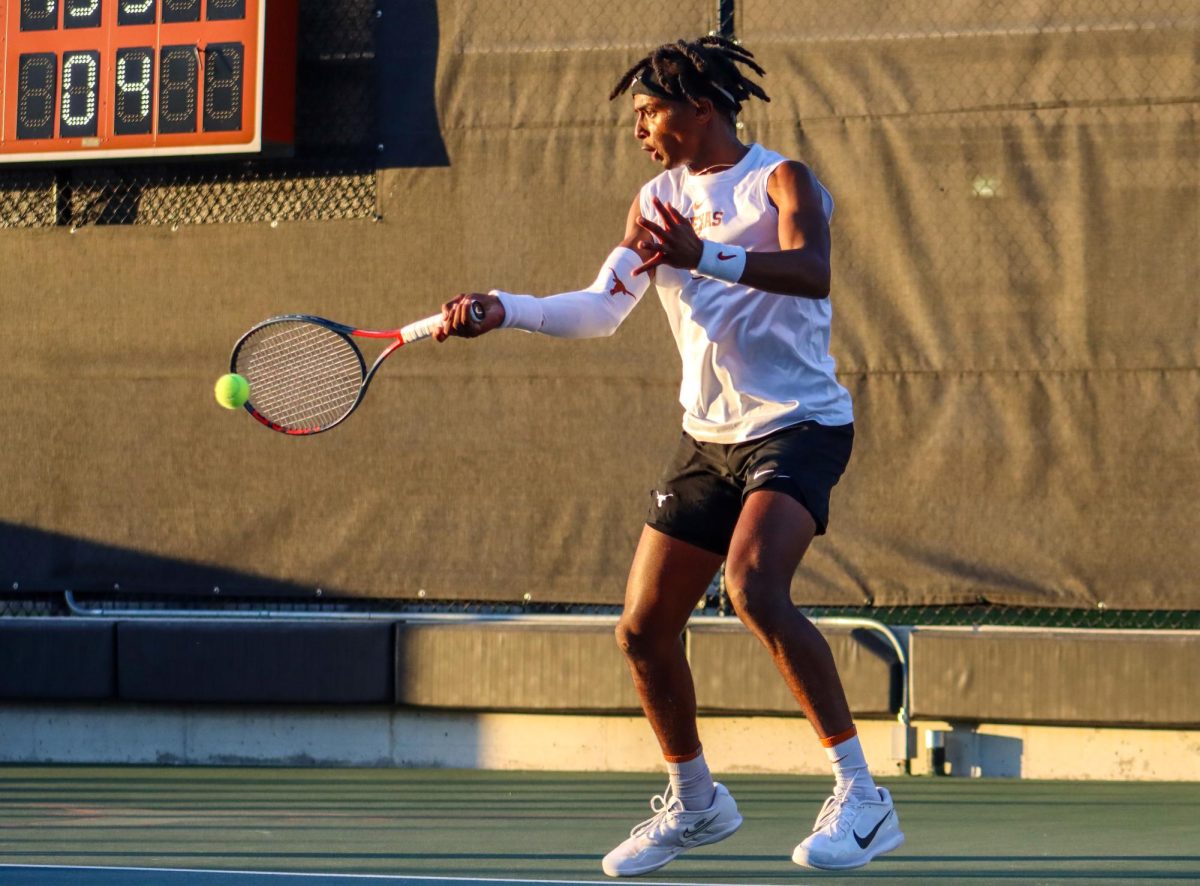DALLAS — If it were all about maximizing revenue, the Big 12 as it had existed until two years ago may have been saved, said former Big 12 commissioner Dan Beebe.
“If they had done what I had advocated for two years ago, then I don’t think any of the institutions, including Nebraska or Colorado would have had any reason to cite the reasons they did to leave,” Beebe said.
In an interview with The Daily Texan, Beebe said college sports world’s two-year obsession with conference realignment was a snowball effect starting with the Big Ten and Pac-10 conference’s desires to expand. The perception of instability in Beebe’s Big 12 that followed led to a constant round of speculation as to which pieces in the conference would fall next. Beebe maintains that, had schools given his policy a shot as well as waited for his assessment of the Longhorn Network, Texas’ controversial $300 million television deal with ESPN, the conference had the ability to remain stable.
“My first year in the conference, I advocated for more equitable revenue sharing, and also two years ago I advocated for sharing media rights more, or at least defining which rights the conference had to sell and which ones the institutions maintained,” he said. “Unfortunately [the original Big 12 teams] didn’t take those actions.”
Then why didn’t the other schools just agree to his plan and save two years of headache? Beebe said the Big 12 was one of the few conferences that wanted to give schools the right to broadcast some of its own games. This is why its teams were able to move around so easily, because unlike in the other conferences where the television rights were handed to the conference leaders, the schools in the Big 12 had more power.
“It was against how the Big 12 always operated, where the commissioner had to go negotiate a deal first and the schools would decide whether to vote for the deal, rather than like in the Big Ten or Pac-12 where the rights were all granted to the conference,” he said. “In all the other conferences frankly, the commissioners have the rights to sell, and there isn’t this negotiation between the schools and the conference to see what they are going to take to the marketplace.”
The conference recently agreed to a right-sharing deal similar to the one Beebe proposed two years ago that will allow it to share tier-one and tier-two television revenue equally. This means that a school turns over the television rights to its best football and basketball games to the conference. If, for instance, Missouri, wanted to leave for the SEC — which continues to be an object speculation — the Big 12 would still make money off of the games it would play against powerhouse teams like Florida, Alabama, LSU or any other team in the conference. The Big 12’s new deal is a six-year commitment.
Nebraska and Colorado left the conference in 2010, followed by Texas A&M this summer. While Nebraska said they left on the grounds of receiving a higher television payday from the Big Ten, the Aggies left because of Texas’ business deal with ESPN.
“Texas A&M didn’t leave because of money, because we were able to demonstrate that they were in line for as much, if not more money in the Big 12,” Beebe said. “[Texas A&M] cited issues with the Longhorn Network. I wish that we would have had a chance to address specifically what they wouldn’t wanted to have happened with that before they went and had meetings with the Southeastern Conference. The issues they were raising were things we would have dealt with most part.“
One of those issues was the Longhorn Network’s intentions to air high school football games, which Texas A&M representatives believed would have given the Longhorns an unfair recruiting advantage. The NCAA recently banned the Longhorn Network from showing high school games, as per its policy, and Beebe said he would have addressed that issue regardless. Beebe received heat from the media and a few university leaders around the conference for a perceived bias towards Texas, which he denies.
“All I ever did was what I thought was best for the overall conference,” Beebe said. “A number of things that I raised and advocated for would have helped Texas, sure, but a number of things I pushed for weren’t great for Texas. At the end of the day the commissioner doesn’t ever try to help one school over the other. I did what was best for the whole.”
And now, just as the Big 12 is preparing to add TCU to its ranks, the man who oversaw the conference during times of its greatest confusion must be happy to see the intercollegiate athletic conference move forward with some sense of stability and purpose. After all, he did try to keep up with expansion trend and add to the Big 12, but his plans were derailed this summer once Oklahoma began considering a conference move.
“We formed an expansion committee during this last summer’s talks of more realignment, but we put it on hold when Oklahoma said ‘well we want to explore our options as well,’” he said. “When that happened we weren’t really going to be able to attract other institutions, because the question then became ‘well who is going to even be [in the Big 12]?”
Beebe made it clear that he has no ill-will towards the Big 12 and that he only wants to see it continue to foster better inter-conference relationships between its teams. He emphasized a clear respect for the conference and hopes that schools will put the considerations of the student-athlete first when considering conference choices.
“The [Big 12] conference is bigger than Dan Beebe. It is something that is of extreme value to this region and this part of the country and I think the best thing for this area is if the conference holds together,” he said. “I have a tremendous amount of care about the conference and its continuation and I was honored to serve. I understand that they needed another voice or whatever, and it’s sad and unfortunate for me personally, but if it is what can help hold the conference together, then that’s great.”
With the addition of TCU and the new grant-of-right deal, it seems as though the Big 12 waters have calmed for now. Nationally though, there are schools still looking to make moves in and out of conferences such as the Big East and Conference-USA. But Beebe cautions against the very tangible possibility of schools exploring realignment options.
“My whole view of the intercollegiate world is that we need to have institutions that compete based on their orientations,” he said. “Where do they get their students and where do their alumni go to work and live? When you disconnect from that, then I think you’re facing some real challenges for the future.”
Printed on October 11, 2011 as: Big 12 plot thickens with developments



